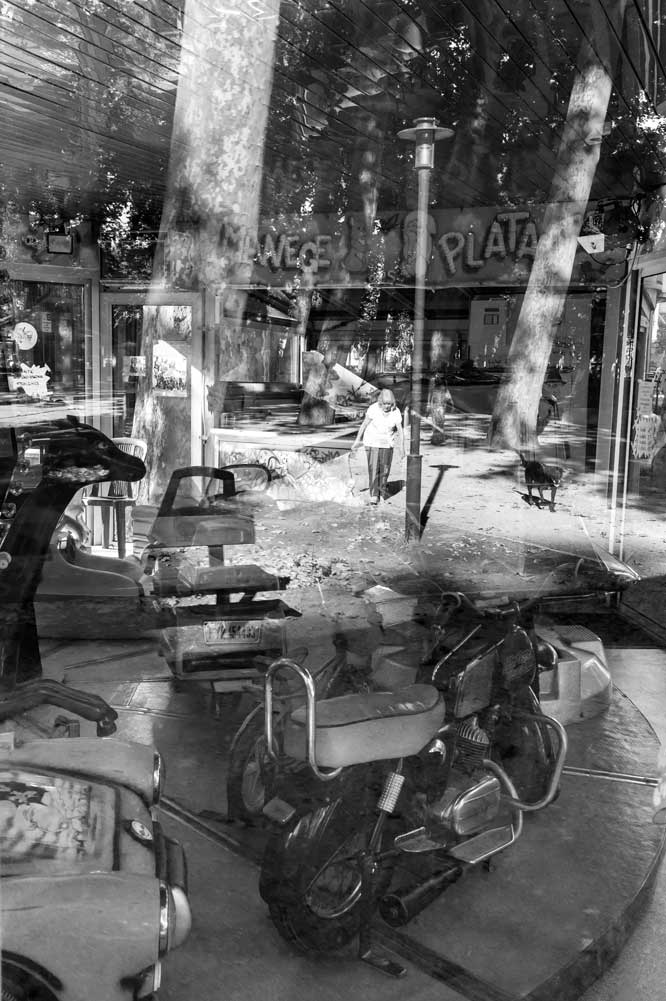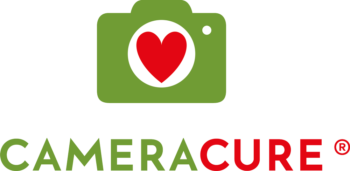Task 24 – Use reflections
Lesson 24
Use reflections

Perpignan, France, 2014. Photo: Steinar Haugland
Life challenge
Little reflection
It would be quite good for us to set aside enough time for reflection in our busy lives. Even the small, natural breaks in life are filled up by most of us with impressions from various media channels. But in the same way that we actively have to look for the light that reflects back to us, we need to invert our thoughts and evaluate them objectively. Often, we blindly trust our thoughts and what we say to ourselves. Often these thoughts are just unquestioned beliefs that we accept as truths.
These ideas might be ones we have carried with us from our upbringing unchallenged. Beliefs that may change when we ask ourselves questions like: Why do I do what I do? Am I spending my time well? Is this important for me? How have I spent my day? What can I do tomorrow to make things better for myself? How easy is it for someone to be around me? What is my contribution to the world?
“It is painful to think,” said philosopher Arne Næss. Maybe this is particularly true when we confront ourselves and understand that there is a lot of work to be done. Arne Næss retrea- ted to the mountains to let his thoughts have room to play around in. Maybe we all need our own zone where we can philosophize and withdraw a little. This can be a place in time just as much as in space.
I philosophize best when I work as an emergency room doctor out in rural areas. That is when I have intense encounters with patients, often in dramatic situations. I get in close to the fate of these people. Between patients I can withdraw myself into solitude where I live to reflect over what I have experienced. I get time to read books and look at documentaries, and what I learn can often be related to my observations at work.
The best way to make our thoughts visible is to get them down on paper. When we get our thoughts out of our heads, they can be easier to see objectively. What’s on the paper can reveal the reflections in our heads just like a camera can capture something we overlook in everyday life.
Do you have time and room to reflect? Do you have anyone to reflect with?
How relevant is this issue for you on a scale of 1 to 6?:
Solution
Discover the reflections
Reflections have a tendency to sneak imperceptibly into the pictures we take. Our brain doesn’t notice them, but the camera does and therefore we have to deal with them. The brain is frantically concerned with weeding out unnecessary information. Normally, we do not need to perceive reflections in windows, puddles or other shiny surfaces, so the brain overlooks them effortlessly. But the camera doesn’t! Therefore, train your eye to perceive reflections. If you first look through a window and then take a picture of it, you will discover the reflections that your visual cortex skipped.
PHOTO ASSIGNMENT:
Photograph reflections. Allow this to be the main subject in the picture. Take photos of different types of reflections, such as appear on water,
metal, mirrors or windows.
On a scale of 1 to 6, how useful was this task for you?:
BOOK SUGGESTION: Good Reasons for Bad Feelings by Randolph Nesse
❞ Think not so much of what you lack as of what you have: of the things that you have, select the best, and then reflect on how eagerly you would have sought them if you did not have them.
Marcus Aurelius
❞ Without reflection, we go blindly on our way, creating more unintended conse- quences, and failing to achieve anything useful.
Margaret Wheatley
❞ I thank God for my failures. Maybe not at the time but after some reflection. I never feel like a failure just because something I tried has failed
Dolly Parton
[note_editor]

